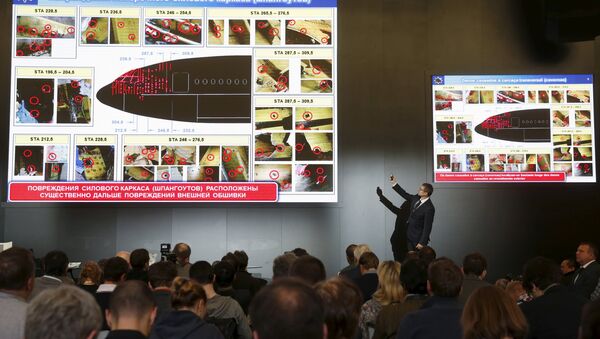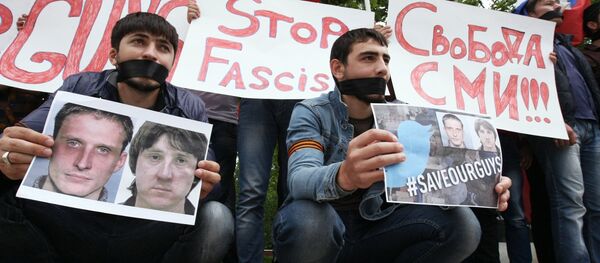This time the website, named Mirotvorec (“Peacemaker”), has revealed the names, email addresses and phone numbers of more than 4,000 journalists, including freelancers like Ian Bateson, as well as correspondents from The New York Times, Reuters, the BBC and other outlets.
“We were collectively labeled “terrorist collaborators” for gaining accreditation from the separatists (self-proclaimed territories in Eastern Ukraine). The list’s publishers claimed not to know what the consequences would be of releasing this information, but it seemed clear that the intent was to encourage people to take action against the journalists on their own,” Bateson writes in his opinion piece on The New York Times website.
The journalist said they needed the accreditation to cover the shooting down of Malaysia Airlines Flight 17.
“It was a dangerous place at the time. The Ukrainian military and the “rebels” were shelling each other, and temperamental men with Kalashnikovs who had been known to kidnap journalists were everywhere,” he recalls.
Now Ukraine has labeled them “accomplices in terrorism.”
“Anton Gerashchenko, a member of Ukraine’s Parliament and an adviser to the Ministry of Interior, praised the publication of the list and called for journalists to assist Ukraine in its “information war” with Russia,” the journalist notes.
However a number of organizations including the Organization for Security and Co-operation in Europe and the Committee to Protect Journalists criticized the publication. Ukraine’s ombudsman called for the website to be blocked.
“The people running Mirotvorec said they would take their website offline and the Kiev prosecutor’s office began an investigation into whether or not those running the site had committed a crime,” the journalist writes.
In response, Bateson says, the interior minister, Arsen Avakov, declared his support for Mirotvorec and accused those who criticized the publication of the list of “harboring separatist sympathies.”
After an official from the Ministry of Information Policy said on TV that the list threatened the lives of journalists her boss, Yuriy Stets, Ukrainian Minister of Information Policy, posted an apology on social media, saying that the official did not represent the ministry’s position.
As the result, the website is now back online and has posted additional journalists’ contact information.
Meanwhile, the editors stated that they would not listen to the “whimpering” about “freedom of speech.”
“The website and its supporters in government are suggesting that journalists can be divided into two camps: those who support the state and those who are against it, with the implication that journalists who criticize the government should be silenced,” the journalist therefore says.
“This is dangerous in any society, but especially in Ukraine right now, where critical journalism is especially necessary,” he therefore concludes.
Bateson demanded senior Ukrainian officials begin to “act in accordance with the Western values that they claim to believe, and condemn the defamation of journalists just for working in separatist-controlled areas.”
They must also ensure that the offending website is shut down and that the investigation into who published the list results in criminal charges.
“This alone will not ensure that the country’s news media is free and fair, but it will help set the right tone. Ukraine must not sacrifice press freedom in its struggle to survive war,” he finally stated.





